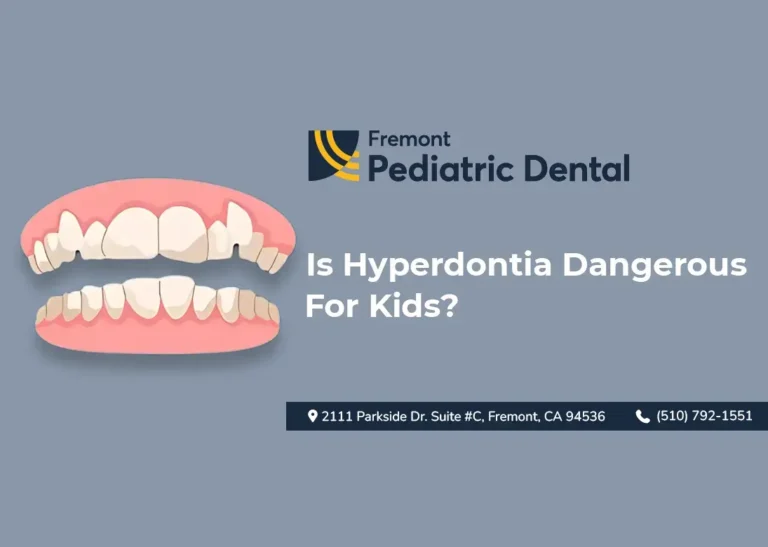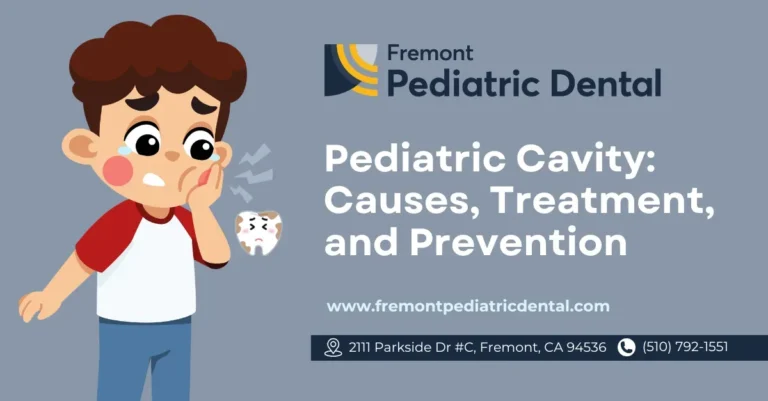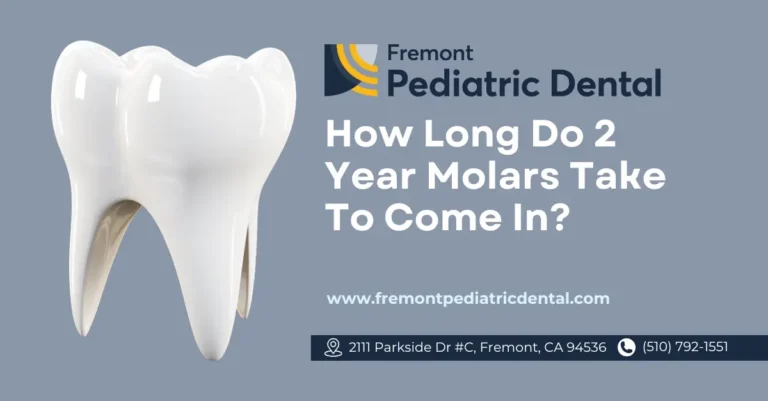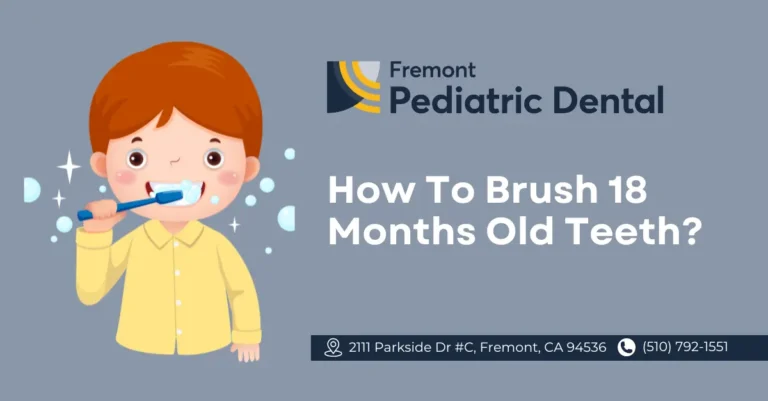Teething is an important yet challenging part of parents lives, which their babies experience in their early growing phase. This era of development can be quite difficult because teething brings a lot of other symptoms besides discomfort in babies, such as fever, extra drooling, sleep problems, runny nose, rosy cheeks, etc.
As a pediatric dentist in Fremont, parent’s frequently ask me that “Is a runny nose a symptom of teething, or is it be due to something else? So, let’s find out the relationship between the two conditions to decide whether teething cause runny nose or is it just a myth or anything that needs to be taken care of!
Teething Process in Babies
As soon as your baby is about to reach the age of 6 months, you can expect the start of the teething process in the mouth. The front teeth (central and lateral incisors) appear first at around six months of age, with the mandibular ones usually erupting earlier than the maxillary.
Then, it follows the sequence from the first molars to canines and the second molars. The set of 20 primary teeth takes around 2-2.5 years to fill the whole gums spaces completely, but it is not that straightforward process. You may also want to know how to brush 18 months old teeth?
Can Baby Teething Cause Runny Nose?
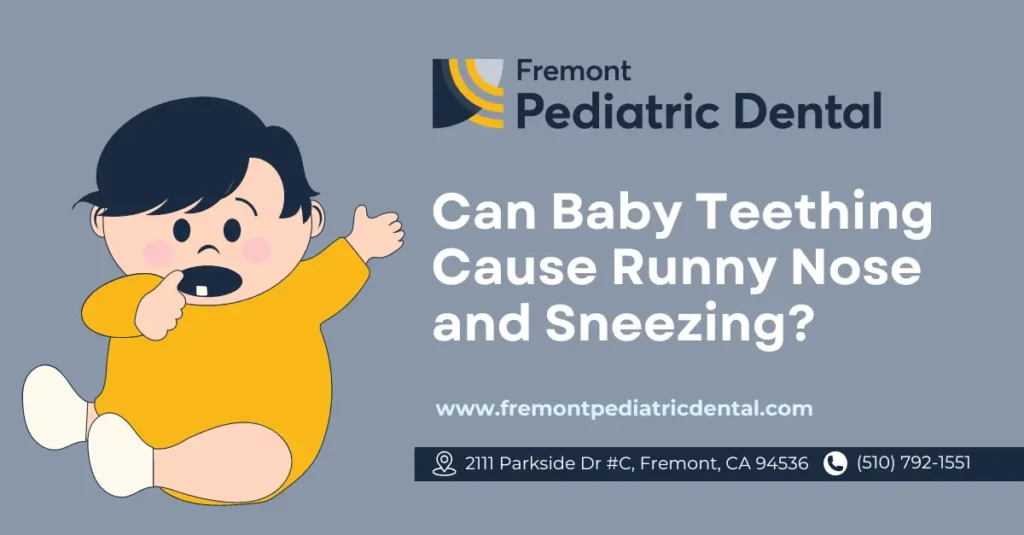
Many parents have noticed common issues, such as fever, congestion, runny nose, stuffy nose at night, and sneezing, occurring in their infants due to teething when these small white pearls start arriving in the mouth being blamed for so many things that need to be identified properly.
However, many oral health experts have denied the direct correlation of teething with such conditions while a few justify an indirect link among them by saying: these symptoms occur due to the stress of teething, which makes their immune system more vulnerable to infections.
Babies try to chew on almost everything to relieve their discomfort during teeth eruption, serving as a main gateway for germs into the mouth. It turns out to be an inflammation around the teeth or infections in the body that manifest symptoms such as sneezing, runny nose, and fever in babies and make things challenging for both babies and parents.
So, the main culprits are the infections and not teething!
Common Symptoms of Teething
Similar to how every baby emerges in variable teeth patterns and eruption sequence, they also face different symptoms. Here are the most common ones:
- Soreness and redness of gums
- Excessive drooling
- Face rash, usually around the mouth
- Irritability and Fussiness
- Mild fever, temperature less than 38 C
- Disturbed sleep
- Gum pain or swelling
The inflammation around the area of teeth erupting is common, which causes a runny nose and increased salivation. These responses are not directly related to teething but can result in symptoms such as:
- Diarrhea & loose stools
- Vomiting or coughing
- Excessive crying
- High fever
- Excessive sneezing
- Loss of appetite
Can Teething Cause Green Snot?
A runny nose while teething doesn’t cause a green snot in babies. The inflammation triggered by teething causes a runny nose, which usually resolves within two to three days. It can also occur due to exposure to viruses causing Common colds, which take more time to resolve. In both conditions, the snot remains clear, and there are no color changes.
Color changes in snot indicate a bacterial infection that causes excessive mucus production which traps bacteria or viruses and turns the nasal discharge into green or yellow. You can also sometimes observe green snot in babies if the common colds get worse or due to a sinus infection.
Can Teething Cause Green Snot?
The nose keeps producing mucus to keep it moist and don’t let the germs enter the body. When the nasal discharge can’t run down the throat, it results in rhinorrhea or runny nose. Here are the most common causes of runny nose mentioned below:
- Irritation by allergens such as smoke, dust, pollen grains, etc.
- Common colds by rhinoviruses
- A foreign body or deviated nasal septum condition causing obstruction in the nose
- A sinus inflammation or infection causing mucus to drain into the nose
- Excessive crying causes tears to discharge from the nose
- Adenoid infection or nasal polyps
Does teething cause a stuffy nose at night?
Teething stuffy nose at night is a common misconception that parents complain about. A runny nose while teething can occur, only if there is inflammation of the gums and mouth. Otherwise, if your baby is experiencing nasal congestion or stuffy nose, it’s most likely caused by the common cold.
How to Soothe a Baby During Teething?
Teething causes pain and discomfort in babies. You can try the following natural ways of relief:
1. Damp Cloth Therapy
Keep a clean, damp cloth in the freezer for 30 minutes to make it ice cold. Give it to your baby for gnawing, or you can massage their gums with ice cold cloth by clean hands.
2. Frozen Fruits
Freeze bananas or berries in small chunks and feed them to your baby to reduce inflammation.
3. Teething Toys
Bring a few silicon or latex attractive teething toys for your babies and let them chew on them. Avoid plastic ones as they can be harmful to their health and environment.
4. Cold Water
If you’re finding an instant way to relieve your baby’s teething pain, give them a cup filled with cool water.
5. Oral Hygiene
You should take care of your baby’s oral hygiene during teething by brushing their teeth regularly with a soft toothbrush and damp cloth for gums cleaning to avoid unnecessary inflammation caused by bacteria.
When to Consult a Doctor?
You should see the doctor if you find your infant experiencing high fever due to teething and not getting resolved within 2-3 days to address any underlying health issue. As far as the runny nose is concerned, let it resolve spontaneously, or if it exceeds for more than ten days, consult a pediatrician immediately.
Concluding Remarks about Baby Teething
When the baby is teething, parents are often worried about their baby’s health issues, such as high fever, runny nose, or disturbed sleep. It isn’t directly related to teething, but it might happen during the whole process, either due to the baby’s weak immune system that couldn’t fight infections efficiently or the extra drooling that irritates the skin around the nose.
What you have to do as a caretaker is to find the right cause behind it and follow the tips to manage a runny nose while teething, relieving their pain and discomfort in this challenging phase of life. For additional support, consider our kid dental care services to ensure your child’s oral health is prioritized during this time.

